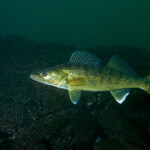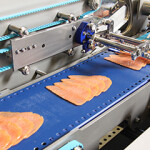Seafood subscription service triples sales during lockdown, signs deal with Imperfect Foods

Americans are cooking more seafood while stuck at home during the COVID-19 pandemic, according to The New York Times.
For Ren Ostry, the owner of Culver City, California-based Kitchen Catch, that trend has resulted in a tripling of sales for her subscription seafood service, which touts the environmental and social benefits of eating bycatch and lesser-known species.
According to Ostry, her customers are a combination of those eager to try something new, and others looking to eat a species of fish they can’t find elsewhere.
“We get some really fun responses from people, often that they’re excited to try [a new type of seafood], or they’re nervous but excited. There’s a lot of nostalgia in our brand. People often tell us, ‘Oh, I haven’t had that since my grandma made it’, or ‘I haven’t had it since I was in my home country,’” she said. “So much of American seafood is hyper-modern. We eat fish that we’re told we like based on statistics. But people send me screenshots of them telling their parents what they’re eating as if their family would be proud of them.”
Boosting her recent success, Ostry just signed a deal with Imperfect Foods, who she said offered her “carte blanche” to create a product with the two companies’ shared values. The San Francisco, California, U.S.A.-based start-up, which made a name for itself selling produce that wasn’t quite attractive enough for grocery stores, branched into seafood in October 2019.
The company recently closed a USD 72 million (EUR 65 million) funding round, led by an investment from Insight Partners. In a press release, Imperfect Foods said it had seen its order sizes grow 100 percent year-over-year and had experienced a doubling of its order volumes since January 2020.
"The grocery industry has been evolving for years, yet this particular moment highlights an urgent need to reinvent our food supply chain with innovative technology, and keep people safe," Insight Partners Managing Director Adam Berger said of the investment. “Imperfect Foods plays an integral role in this industry, merging a clear social mission with affordability and convenience. We're excited to work closely with the team as they enter this monumental phase of growth, and push the industry towards a more intentional and efficient food system."
Ostry said she is currently selling opah, a common bycatch of tuna fishing in San Diego, to Imperfect Foods. The fish is blast-frozen, vacuum-sealed, and sold in one-pound portions.
“The luck of logistics were really on our side,” she told SeafoodSource. “Right before the pandemic hit, we signed our first wholesale deal. Right at that time I moved into an industrial kitchen space and got all the permits I needed … so the timing was amazing. The stars aligned.”
Ostry said she wants to continue to expand her business.
“We’re in talks with other companies as well,” she said. “What we’re really hoping to do is position ourselves as a company that’s successfully deconstructed and then reconstructed the industrialized seafood [chain].”
For the most part, it’s been easy for Ostry to convince her customers to try something new.
“People understand that getting out of their comfort zone when it comes to seafood is what we have to do,” she said. “We wanted to make a solution that was simple and fun and inviting and acceptable.”
To forge relationships with suppliers, Ostry has used contacts from her years spent in the seafood industry.
“I reached out to people that I used to buy what I would call white tablecloth seafood from. I was using relationships from previous seafood jobs," she said.
But instead of using the tuna or black cod that she used to purchase, Ren bought the bycatch.
“I would come to help them clear out their boat,” she said.
Ostry also built contacts with fishermen through social media.
“I’m a seafood business, I’m a fishwife, but at the end of the day, we’re an e-commerce business,” she said. “We’re leveraging social media, subscription software, we’re really thinking about the user experience in a way that a lot of other seafood businesses would benefit from stepping into.”
Ostry said she’s receiving gratitude from the fishermen, some of whom have said Kitchen Catch has tossed them a lifeline during the pandemic.
“We’re definitely getting positive feedback from our fishermen partners, as well as the seafood co-ops that we buy from,” she said.
While business is booming, Ostry has still had to make changes during the pandemic that she never imagined.
“I had to pull out the old business plan and mission statement for the first time in a while and we’ve sort of adjusted to fit different needs here,” she said. “I’m selling tuna for the first time, we’re going to sell some California king salmon this year. Part of our founding values was to never sell the big three: shrimp, salmon, and tuna, but what is far more important than that was to meet the needs of our communities.”
Ostry said the COVID-19 crisis has made her realize that a temporary shift in her vision is important to maintain her business.
“I never in a million years thought I would sell salmon [or tuna],” she said. “But there’s no tuna bycatch if no one’s sourcing tuna.”






Share